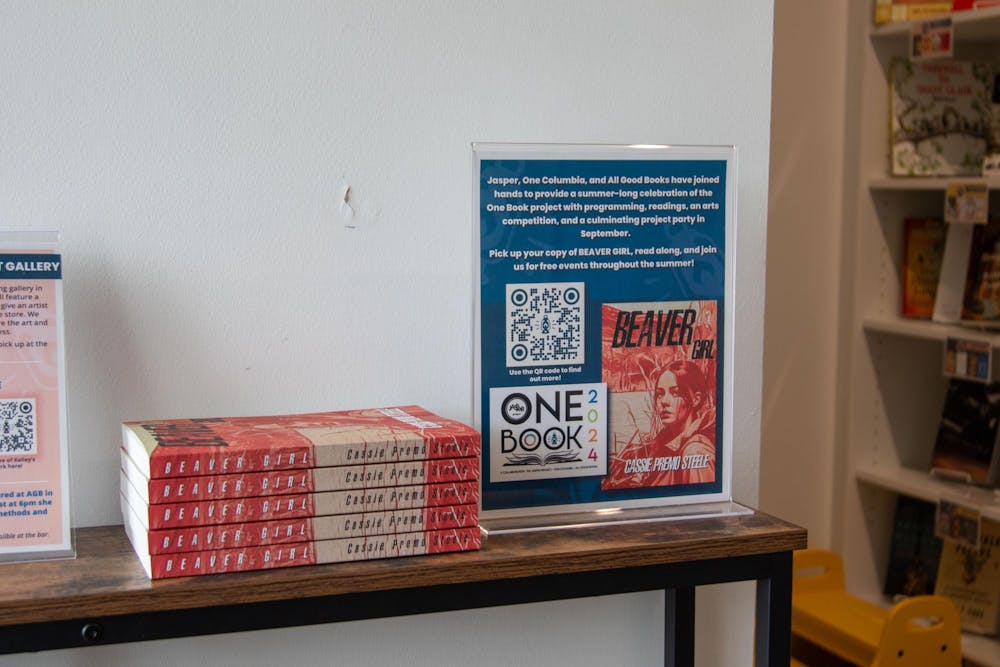The Congaree National Park was formally established as a national park in 2003. But the land and river that make up the park have been a major part of Columbia and the surrounding area’s culture for decades.
Some Midlands residents, such as local author Cassie Premo Steele, feel the park is still under-appreciated, both in terms of attendance and knowledge of its complicated history. Her latest novel aimed to tackle those issues.
Cindi Boiter is the executive director of the Jasper Project, which plans and hosts various arts events throughout the Columbia area. Earlier this year, Boiter was looking for a novel to revive its “One Book” program, which she said highlights local authors by bringing the community together to read and talk about one of their novels across a series of events.
While looking for candidates, Boiter became intrigued by Steele's 2023 novel, "Beaver Girl," set in the Congaree National Park.
"It deals with community, it focuses on the LGBTQ community, it focuses on environmental crises, and it was just the perfect book, I think, for this year's project," Boiter said.
Steele said she was eager to collaborate with the Jasper Project in promoting her book, “Beaver Girl,” which takes place in a near future that was overtaken by a climate change-induced collapse. The story follows a 19-year-old girl named Livia on her journey down the Congaree River to bring the community together and promote both her work and the park.
On June 10, Steele led a panel at the Nickelodeon Theater focusing on biodiversity at the Congaree National Park and diversity in Columbia as part of the "One Book" campaign.
“It’s really exciting to see the community come together and discuss the issues in the book but also many issues that affect the city of Columbia and the region of Congaree National Park,” Steele said.

USC professor and environmental specialist Tameria Warren also was a panelist at the event. Warren serves in Lower Richland outreach organizations to spread awareness of the park and the obstacles it faces.
At the event, she discussed the long history of the area and its evolution and importance to African American communities.
“Africans used these areas, such as the National Park, as a place of refuge. They lived there, they went fishing, foraging and pretty much went undeterred for, if not years, centuries,” Warren said.
That tradition was disrupted when the area was made a monument and national preserve in the late 1960s and early 1970s, limiting those communities’ access to the land. Warren said modern park leadership and community leaders have been working to bridge those divides.
Steele said a key goal for her in writing “Beaver Girl” was to give nature a voice. She chose to do so by giving her beaver characters voices, a decision she said didn’t appeal to the large publishers she initially approached.
“Many mainstream publishers and people based in New York City were not interested in the book because of what they called 'talking animals,'” Steele said. “To me, that’s a sign of how our culture has ignored the agency and voice of nature, and it’s part of the cause that has gotten us to where we are today.”
She eventually found a smaller publisher with younger leadership called Anxiety and Outcast Press, which she said embraced the potentially taboo topics in the book and saw eye to eye with her on their importance.
“I won’t say the issues that they’ve seen have totally gone away, but there have definitely been efforts over the years to mend (the relationship),” Warren said. “The more, the better.”
One issue Steele and Warren both found critical was relatively low attendance, awareness and opinion of the park, especially among locals.
“The word swampy or swamp, its kind of a metaphor for things we down upon in our society,” Steele said. “It was known as the Congaree Swamp. So people who have lived here for a long time still use the word swamp.”
Warren teaches classes about the natural history of the park and South Carolina as a whole, and Steele holds writing workshops within the park. Both encourage locals, especially young people like USC students, to spend some of their free time exploring, volunteering and learning about the park.
“Once you’re kind of into loving Congaree, it just becomes a part of who you are,” Steele said. “You realize, 'Oh, this is our home.'”
The next One Book event, a community book discussion with Steele, will take place on Aug. 27 from 6 p.m. to 7:30 p.m.

